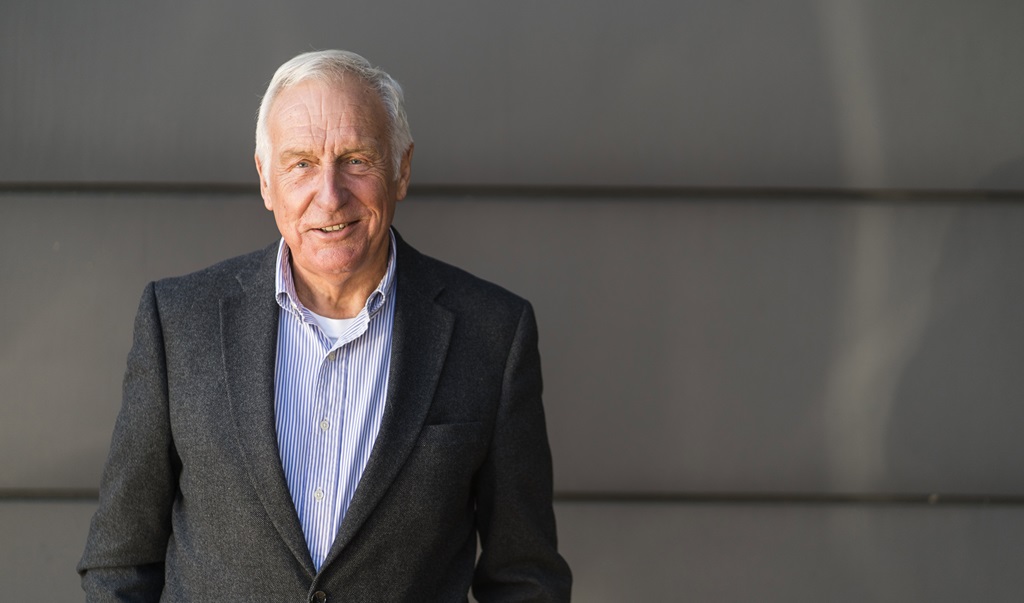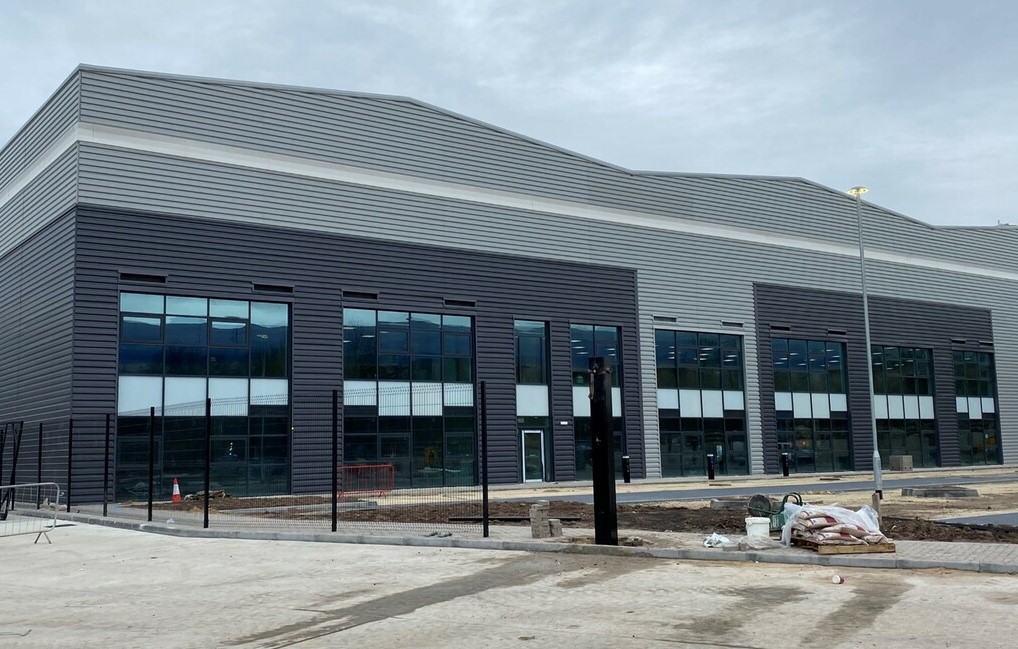Commentary
‘Bramall Lane would have been second to none,’ reflects McCabe
As Scarborough Group chairman Kevin McCabe’s book Mucky Boots hits the shelves, Place Yorkshire spoke to the man who says he achieved two-thirds of his masterplan for Sheffield United’s home in his two decades at its helm.
Is Kevin McCabe the most tireless man in Yorkshire property? There might have been a few who’ve racked up higher net worth, bigger one-off projects.
But there can’t be many who left school with no qualifications, taught themselves on the job and studying surveying at night school, and went on to build a globe-spanning real estate business that has emerged through several seismic shocks, notably pulling off an £800m corporate disposal to Australian group Valad just before the global crash of 2008.
In terms of telling his story, there’s more to come from McCabe. For now, he’s focused on telling the story of him and Sheffield United, his club since his boyhood in Sharrow, in Mucky Boots, written with fellow Blade Peter Beeby.
Although McCabe left Sheffield in the 1970s to pursue his career, first moving to Scotland before settling in North Yorkshire, he’s always been a Blade, taking his sons Scott and Simon to games as they grew up.
What got him into the boardroom in the 1990s, by which time he’d started making a few quid in property through Scarborough Group and Teesland, was knowing he could do some good, bringing a true specialism to a football boardroom.
The 1992 Taylor Report, commissioned in the wake of the Hillsborough disaster, demanded football clubs smarten their stadia, primarily by going all-seater.
SUFC’s big short-term issue was tackling the John Street Stand. For a time in the mid-1990s Bramall Lane was three-sided after the ramshackle former stand was demolished.
McCabe got to know the people running the club, first Reg Brealey, then Mike McDonald, and bit by bit found himself at the centre of things, eventually taking over the club in 1999.
You got involved with, and then took over, at United and brought your property skills to bear, on the John Street and other parts of the stadium, also infilling corners, interventions that really moved Bramall Lane on – I think the phrase Peter uses is “commercial, but retaining character”.
I wanted to make Bramall Lane a super stadium, a top-class facility that would be as good as anywhere, and I’d say we achieved two-thirds of that masterplan vision.
The statues of Derek Dooley and Joe Shaw that visitors will see in the car park are deliberately placed, because that’s where the expanded South Stand would begin – my thinking was that we’d do as Liverpool FC have done in recent years in expanding the Anfield main stand, building over and behind the existing structure.
We’ve done the preliminary work so that anyone who takes over Sheffield United can do this. If I’d been able to remain at the club, I would have tackled this and done it.
Bramall Lane would have been second to none. It’s the oldest professional football ground in the world, it’s unique, this is a club you can’t just move to Timbuktu.
The opportunity is still there, the site still has a big footprint thanks to its cricket ground origins. What we wanted was a ground to hold 44,000, including 10,000 visiting fans, to be built at the same time as building the team. More success means more visiting fans, usually.
It’s a labour of love to some extent – I think you spent around £30m on the Bramall Lane end, including the corners and hotel?
Exactly – infilling that corner, where the wind used to howl through, wasn’t really the most rational thing to do, but I wanted to do it to improve the stadium. The return on investment, in terms of the volume of seats from the corners, doesn’t stack up. We had to marry up the Bramall Lane End, which was built for cricket, with the South Stand, built for football in the 1970s, which was a really tricky project because the rakes were totally different.
The heart often rules the head in football! Was building a training ground and academy at Shirecliffe, a £500,000 land purchase, but in time a total investment of £7m, equally important?
What I really wanted to do when I took over was to outdo Wednesday – that’s your natural instinct as a supporter. You’re either one or t’other, aren’t you, in a city like Sheffield. They’d had support historically to make Hillsborough the better stadium, for the 1966 World Cup, when Bramall Lane was still a cricket ground.
United had no facilities – for years the players had a two-mile run up a steep hill to Myrtle Road for training, then under Dave Bassett it was the university facilities, then Abbeydale Grange school’s sloping fields.
The opportunity came up to take on the former Forgemasters sports ground, and we took it, and that allowed us to put proper infrastructure in place, a training headquarters for the first team, but also to develop an academy.
We also developed a facility in Crookes. As much as anything, it was about providing facilities for junior football in a wider sense – kids in blue and white stripes as well as red and white – but I always thought if we could be more of a presence there, we’d see more and more red and white, particularly if the team was successful.

McCabe at the club he spent 20 years running. Credit: Blades Sports Photography
.
Wednesday had been far more successful in the 1980s and 1990s – over those two decades, only in 1991 did the Blades finish higher and even then the Owls won a trophy. After 1999, United finished higher in 14 out of 20 seasons, and in the most recent seasons the clubs have been in the same division have been better supported – whereas in 1999-2000, United’s average crowd was 13,718, Wednesday’s a tick under 25,000. So, for all that there might be frustrations over Premier League stints being shortlived, outdoing Wednesday has, it’s fair to say, been achieved.
Some key stretches of Mucky Boots deal with the Carlos Tevez affair, when West Ham secured Premier League survival at United’s expense through the efforts of the illegally-registered Argentinian star. A compensation payout of £20m from the London club felt like small potatoes, as the subsequent years saw the Blades struggle, with a high churn of chief executives and first team managers highlighting how much more capricious an industry sport is.
It’s notable that although the Carlos Tevez affair clearly rankles to this day, you didn’t look to punish West Ham when the subsequent inquiry found in your favour. Why was that?
It was a massive injustice, perhaps the greatest ever in English football. It took 12 years for us to regain Premier League status, in which time West Ham spent all but one year in the Premier League, benefitting from all that TV money.
Deep down I’m a football fan and West Ham are a great historic club. I didn’t want to be responsible for their liquidation – under their Icelandic ownership at the time of the fine, they were really struggling, because their national economy had crashed. My issue was with the people who had previously run the club.
Some of the managers we took on were really good people, but just didn’t get the rub of the green. There is so much luck involved in football. You can get all your planning right, the perfect set-up, and still it can come down a referee’s decision, a missed penalty, an offside.
We’ve spoken previously about your mid-2000s Chinese ventures, which seems to grow out from property into football. Could more have been done to build on that, as a city?
China as an opportunity was frustrating for me. We were doing good business in China, working in joint ventures with Top Spring, a company we listed, and it was very active. We were invited to take over the Chengdu club, because the Chinese government banned tobacco companies from owning sports clubs, and we got to know a few government officials.
We invited key people from Sheffield City Council, and we twinned the cities, but after some early encouragement, it all seems to have died a death. It feels like a shame.
McCabe ran the club as joint owner with Prince Abdullah of Saudi Arabia from 2013 to 2019, the relationship deteriorating in the latter stages, culminating in the parties going to the High Court, where to cut extremely short the story told in full in Mucky Boots, McCabe lost. After 20 years of pouring heart, soul, and a significant number of millions into the club… to be cast out, and indeed cast as the villain of the piece by some, hurt deeply.
Although football fans can be emotional and quick to criticise, do you think there’s now an appreciation among most supports for what you did?
Yes, it’s something we’re already seeing, although not from the club itself. I’ve been back to Bramall Lane, and couldn’t get a moment’s peace, with so many people coming up to me, lots of people I’ve known for years – as a supporter, it will always be my club.
I still love watching sport. I‘ve always watched Yorkshire and England cricket – I know Colin Graves, he’s the right man to turn it round for Yorkshire – and now I often watch football at Scarborough Athletic. The fans are like Blades fans, they’re incredibly passionate – there’s just not as many of them.
Football clubs are like universities. They’ve been there forever, and are so important as institutions in their cities. It’s about fans and their families, the local community, neighbours, and you get on and are driven by making it better for everyone. A lot of fans now, especially overseas, don’t get that element of it.
- “Mucky Boots: Trials and Tragedies of a Football Club Owner” is out now, published by Pitch Publishing.




